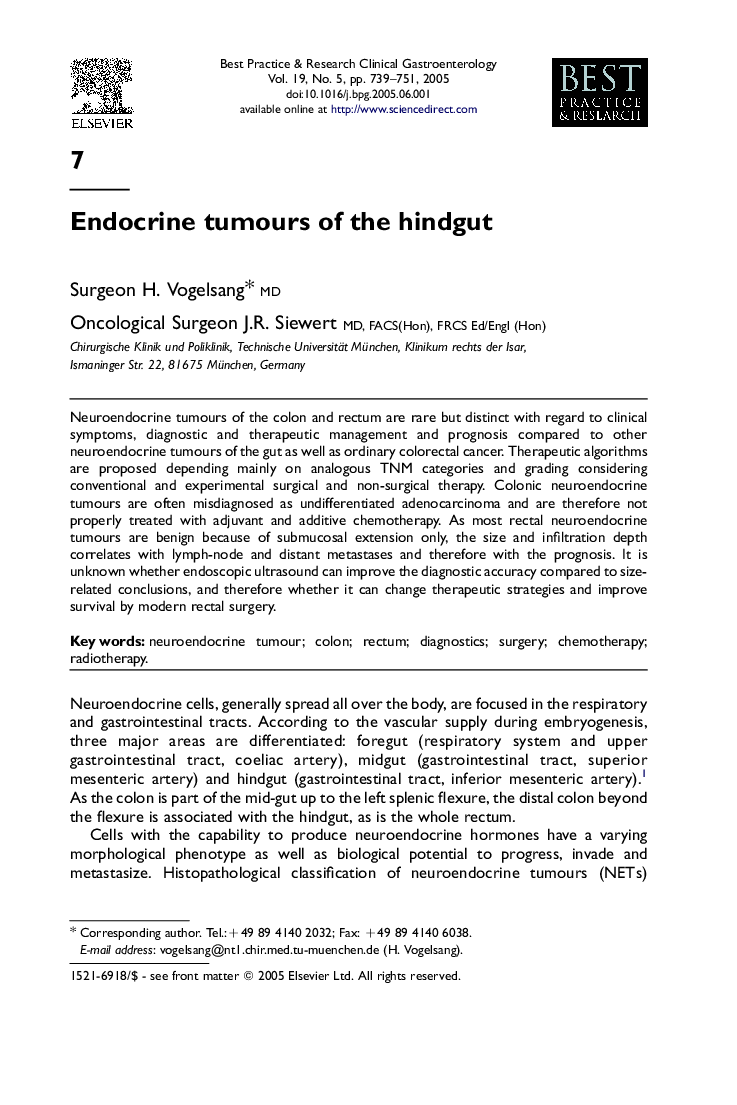| Article ID | Journal | Published Year | Pages | File Type |
|---|---|---|---|---|
| 9236342 | Best Practice & Research Clinical Gastroenterology | 2005 | 13 Pages |
Abstract
Neuroendocrine tumours of the colon and rectum are rare but distinct with regard to clinical symptoms, diagnostic and therapeutic management and prognosis compared to other neuroendocrine tumours of the gut as well as ordinary colorectal cancer. Therapeutic algorithms are proposed depending mainly on analogous TNM categories and grading considering conventional and experimental surgical and non-surgical therapy. Colonic neuroendocrine tumours are often misdiagnosed as undifferentiated adenocarcinoma and are therefore not properly treated with adjuvant and additive chemotherapy. As most rectal neuroendocrine tumours are benign because of submucosal extension only, the size and infiltration depth correlates with lymph-node and distant metastases and therefore with the prognosis. It is unknown whether endoscopic ultrasound can improve the diagnostic accuracy compared to size-related conclusions, and therefore whether it can change therapeutic strategies and improve survival by modern rectal surgery.
Related Topics
Health Sciences
Medicine and Dentistry
Endocrinology, Diabetes and Metabolism
Authors
Surgeon MD, Oncological Surgeon MD, FACS(Hon), FRCS Ed/Engl (Hon),
